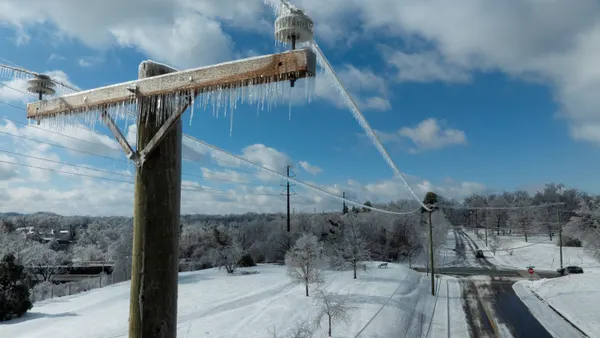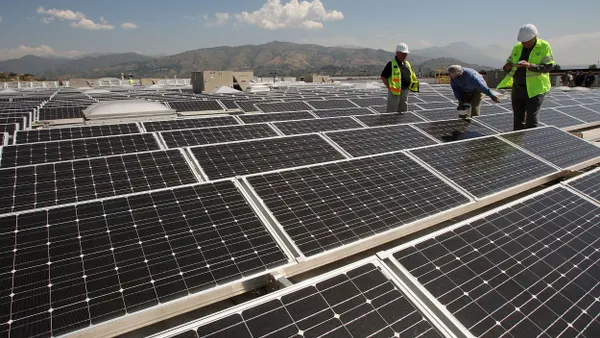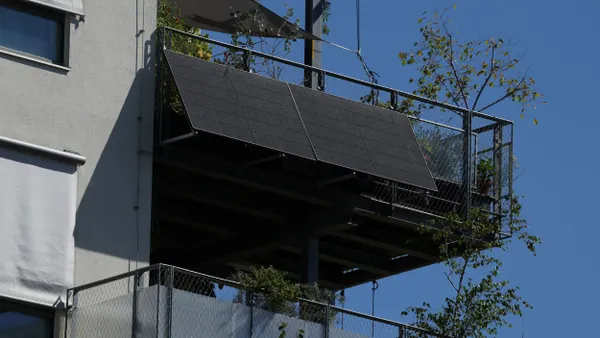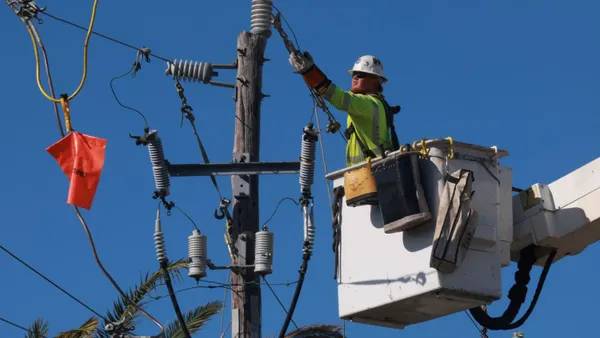Dive Brief:
-
The Maryland Public Service Commission (PSC) on Monday approved a scaled-back version of an electric vehicle infrastructure program that will allow the deployment of over 5,000 chargers across the service territories of the state's four largest utilities.
-
The five year program was proposed by Baltimore Gas and Electric (BGE), Delmarva Power and Light, Potomac Edison and Potomac Electric Power Company (PEPCO). It supports the state's goal to deploy 300,000 zero-emissions vehicles by 2025 while reducing greenhouse gas emissions 40% from 2006 levels by 2030.
- The program, first proposed in January 2018, originally included 24,000 chargers, which would have made it the second largest charging program in the country.
Dive Insight:
Maryland's approval marks the latest step in states like Pennsylvania, Ohio and New Jersey that stakeholders hope will spur the next wave of EV adoption, though the plan has been significantly scaled back from its initial ambitions.
"I think it's safe to say that the Maryland Public Service Commission ran one of the most open and collaborative proceedings that we've seen to address this very emerging topic in the utility regulatory space," Noah Garcia, transportation and policy analyst at the Natural Resources Defense Council's Climate and Clean Energy Program, told Utility Dive.
The programs will largely be funded by ratepayers and were originally anticipated to raise customer bills from a peak range of $0.25 to $0.42 per month. The revised cost has not yet been revealed.
"It was clear that the commission was taking a more cautious approach," in scaling back the number of chargers, said Garcia. "Not necessarily tiptoeing into the space, but essentially feeling like the programs that were proposed were perhaps too expensive, or not needed to stimulate the market, was my read on what the commission was saying."
The plan requires the utilities to monitor the progress of their programs and report that progress to the commission every six months — "laudable features of this program," Garcia said.
"Our hope — and it seems like what the commission has laid the opportunity for — is the potential for additional proposals and filings in the future that take the best practices, take the lessons learned, and apply them in new ways that will again move the market forward faster to achieve the state's fast-approaching ZEV and climate goals," he said.
The plan also includes EV time-of-use rates for residential customers, encouraging those customers to charge during off-peak hours and targeting multi-unit dwellings "to provide equitable access to EV charging," according to the PSC.
"It's pretty novel that the commission fundamentally recognizes the benefits of well-managed EV charging, and for that reason actually requires the utilities to file residential rates that take advantage of the flexibility of EV charging, and in fact, encourage that new EV load at times that are beneficial to the grid," said Garcia.
Exelon subsidiaries PEPCO and BGE told Utility Dive in a statement that they appreciate the collaborative efforts of everyone involved in the process and look forward to implementing the approved portions of the plan.
Establishing utilities' role in EV development is "absolutely critical" moving forward, said Garcia.
"As stewards of the electric grid and providers of this new fuel that EVs will be using, it makes sense for utilities to play a role as planners, facilitators and ultimately solution providers in reducing barriers to transportation electrification, ensuring that investments are made prudently [and] that the grid is well managed as new electric load comes onto the grid," he said.














